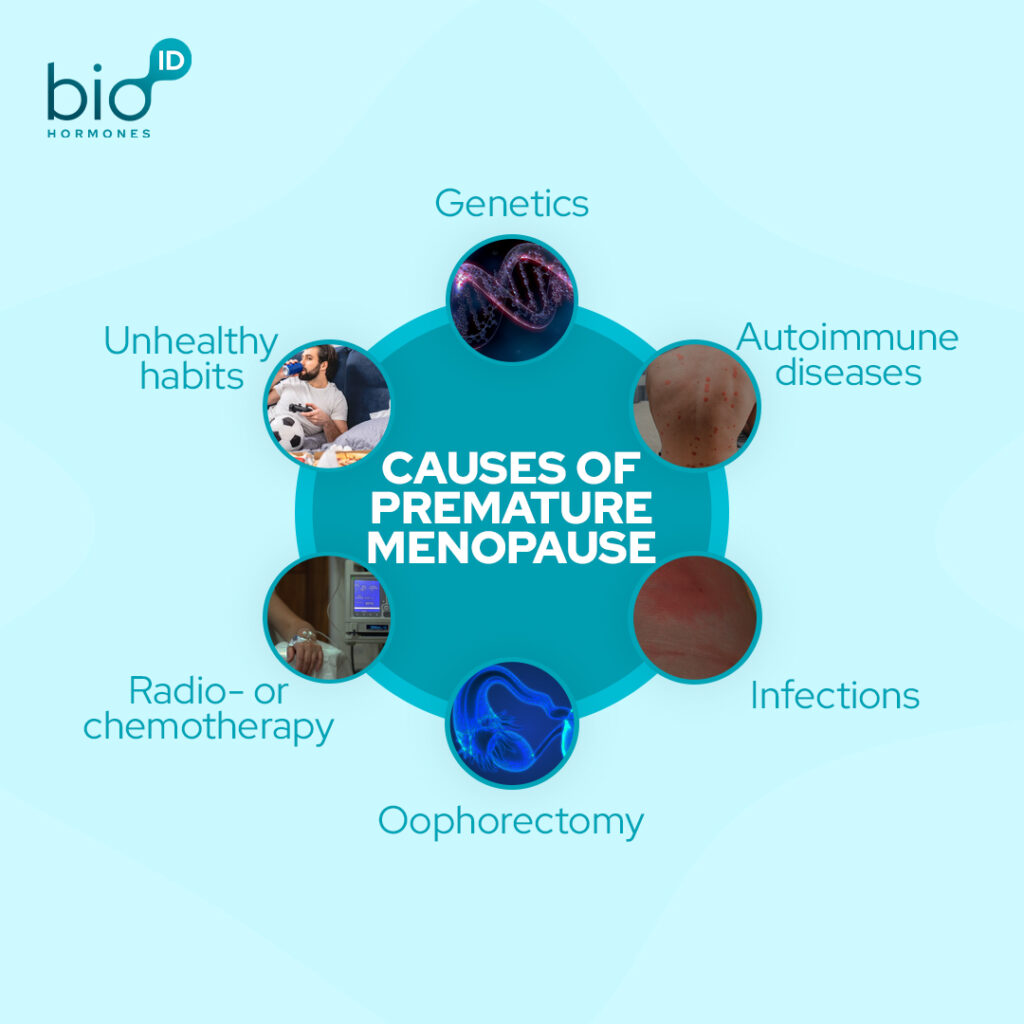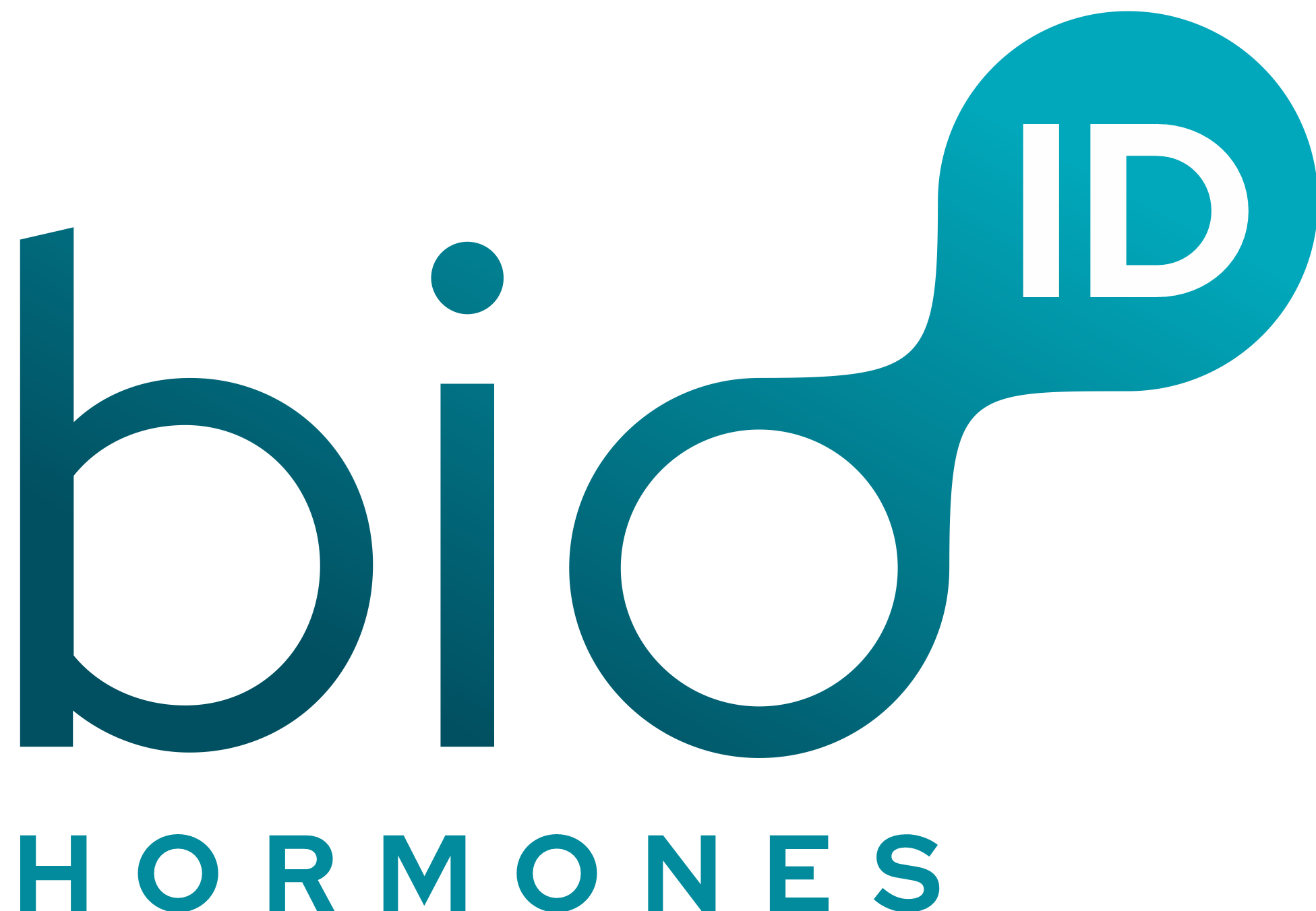Knowing whether you’re still in perimenopause might be confusing. Read our blog to know when your symptoms of perimenopause are about to end!
As menopause approaches, women start to notice variations in their typical symptoms. This blog will spotlight some points to give an insight into perimenopause and its ending stage!
Table of Contents
As females start to experience perimenopause in their early 40s, it welcomes them with troublesome symptoms. However, when this phase escapes the door, it brings good and bad feelings because some of your symptoms will become mild while others will become more intense.
What is Perimenopause?
Perimenopause refers to the transitional window between your fertile years and the menopausal stage when ovulation stops. It typically begins in a woman’s 40s, though some may experience it earlier or later. In perimenopause, hormones such as oestrogen and progesterone begin to fluctuate, leading to various physical and psychological symptoms.
A few of its signs include hot flashes, mood swings, sleep issues, vaginal dryness, and changes in libido. If you are feeling these symptoms, it indicates that you’re approaching the end of your reproductive stage.
34 Symptoms of perimenopause?
There are about 34 signs that indicate you are in the transitional phase toward menopause. These are highlighted briefly to give you a comprehensive overview of this natural phase:
- Irregular Periods: Changes in the timing and pattern of menstrual cycles are known as irregular periods.
- Night Sweating: Excessive sweating during sleep, often causing disruption and discomfort.
- Hot Flashes: A sudden, intense feeling of heat that leads to flushing and sweating.
- Mood Swings: Sudden, unpredictable changes in feelings, ranging from anger to sadness.
- Insomnia: Having trouble falling asleep or staying asleep all night.
- Fatigue: Lack of energy coupled with constant weakness.
- Weight Gain: A gradual Increase in body weight, especially around the abdomen.
- Breast Sensitivity: Discomfort and tenderness in breasts.
- Decreased Libido: Less interest in or desire for sexual activity.
- Vaginal Dryness: Vaginal dryness, resulting from insufficient vaginal lubrication, can lead to discomfort during sexual activity.
- Changes in menstrual Flow (Lightner or Heavier): Changing in the volume and the duration of menstrual bleeding.
- Aches in muscles and joints: Discomfort or pain in the muscles and joints.
- Headaches or migraines: Chronic head pain, typically accompanied by throbbing or pulsating sensations.
- Digestive problems: Problems with digestion associated with a lot of gas and discomfort in the abdomen.
- Urinary problems: Issues with bladder control or an increased urge to urinate.
- Difficulty in Concentration: Refers to forgetfulness, attention issues, and memory loss.
- Panic Attacks and Anxiety: Worry, unease, and sudden attacks of terrifying fear or dread.
- Skin Changes: Dryness, thinning, and increased wrinkles in the skin.
- Hair thinning or loss: Loss of hair volume or increased hair loss.
- Increased allergies: Elevated reactions to allergens or higher sensitivity to stimuli.
- Brittle Nails: Delicate or easily breakable nails.
- Depression: Persistent melancholy, hopelessness, and boredom with routine tasks.
- Feeling dizzy: Being unsteady, faint, or dizzy.
- Heart Palpitations: Feelings of a pounding or irregular heartbeat.
- Irregular Heart Rhythm: Changes in the rate or beat of the heart.
- Change in Body Odour: shifts in one’s scent or increased body odour.
- Heightened temperature sensitivity: Increased sensitivity to hot or cold temperatures.
- Electric shock-like sensations: The body experiences brief, abrupt sensations that resemble electric shocks.
- Burning Mouth: Tongue or oral cavity experiencing burning or tingling.
- Itchy Skin: The impression that insects are crawling on or on your skin.
- Gum Issues: An increased sensitivity, bleeding, or gum inflammation.
- Vision changes: The changes to perception, focus, or clarity of vision.
- Vulnerability to Infections: Greater susceptibility to infections, such as urinary tract infections or colds.
Worsening of pre-existing conditions: The intensification of pre-existing medical conditions (like asthma or migraines).
What are the Causes of Premature Menopause?
Premature menopause, medically referred to as premature ovarian insufficiency, can arise from various causes. Some potential causes include:
- Genetic factors: Certain genetic conditions, such as Turner syndrome or Fragile X syndrome, can increase the risk of premature menopause.
- Autoimmune disorders: Conditions like rheumatoid arthritis or thyroid disease, which are autoimmune disorders, can potentially impact the ovaries and result in the onset of premature menopause.
- Medical treatments: Certain treatments like chemotherapy or radiation therapy, used to treat cancer, can damage the ovaries and cause premature menopause.
- Surgical interventions: Surgical removal of the ovaries or a hysterectomy that involves removing the ovaries can trigger premature menopause.
- Chromosomal abnormalities: Some women may have chromosomal abnormalities that can lead to early depletion of eggs and premature menopause.
- Lifestyle factors: Smoking, excessive alcohol consumption, and poor nutrition can also contribute to premature menopause.
It is important to note that in many cases, the exact cause of premature menopause remains unknown. If you suspect you may be experiencing early menopause, it is advisable to consult with a healthcare professional for a proper diagnosis and guidance.

What are the Indications that Perimenopause Is Coming to an End?
Since you have been informed about the symptoms of perimenopause, it’s time to know those signs that indicate your perimenopause is about to end. While some symptoms improve at this phase, others may get worsened. Here are some ending signs of perimenopause:
1. Longer Menstrual Cycles
If your menstrual cycles are spaced 36 days apart, it indicates you are at the late perimenopause stage; connected to cycles in which ovulation does not occur. Moreover, at the end of perimenopause, periods typically get less frequent over a few months or years before stopping altogether or becoming irregular (heavier or lighter).
2. Increased Hot Flashes
Hot flashes are marked by the sudden sensation of intense heat followed by flushing and sweating. Although the symptom of hot flashes cause trouble since the start of perimenopause, it becomes more intense as the ending stage arrives. The fluctuations in oestrogen and progesterone can become stronger as they are gradually less produced by the ovary, intensifying hot flashes. As oestrogen also regulates body temperature, its decline leads to the malfunction of the brain thermostat. It causes the dilation in your blood vessels coupled with sweating.
3. Disrupted Sleep Patterns
Sleep difficulties are common symptoms of perimenopause but can worsen in its ending stage. The imbalance in hormone levels, such as oestrogen and progesterone, leads to a disturbance in the sleep-wake cycle. In addition, these sleep disturbances can also result in restless nights and a general feeling of weakness and sleepiness during the day. However, maintaining a regular sleep schedule, ensuring a comfortable sleeping environment, and engaging in stress-relieving activities can reduce restless sleep.
4. Stable Mood and Emotional Well-Being
Amidst worsening symptoms, here comes the good news! It is common for women to experience extreme mood swings such as irritability, anxiety, or sadness during perimenopause. But as the stage ends, hormonal imbalance stabilises, leading to improved emotional well-being.
Due to consistency in hormone levels, you may experience fewer mood swings and stable emotional health. It is important to know that an emotional balance results from the body’s adjustment to the new hormonal environment and the brain’s adaption to the stable neurotransmitter activity.
5. Fewer Headaches
You can get a sigh of relief because you may have less frequent migraine or headaches at the end of perimenopause. Some women may become more susceptible to headaches or migraines due to decreased oestrogen levels. However, the headaches may become less frequent as the body adjusts to the new hormonal balance during the end of perimenopause.
6. Persisted Vaginal Discomfort
Vaginal dryness is a bothersome symptom that persists till your perimenopausal ends. As your oestrogen declines, it can change the vaginal tissues and decrease natural lubrication. As a result, you might experience an itchy, sore feeling in and around your vagina and pain during intercourse. To address this symptom, consult with your healthcare provider for treatment in creams, tablets, or vaginal rings.
How Long Does Perimenopause Last?
The period preceding menopause is known as perimenopause, a transition stage. It can last anywhere from a few months to several years, depending on the individual woman, but in some cases, it can extend up to 10 years. However, it’s crucial to understand that perimenopause ends when a female enters menopause by missing her period for 12 consecutive months; this turning point denotes the end of ovulation and menstrual cycles permanently.
Final Remarks
Perimenopause, which occurs before menopause, is a natural and transformational stage in a female’s life. Its defining characteristics entail hormonal changes and a variety of symptoms varying in duration and severity.
As perimenopause ends, women may experience signs such as irregular menstrual cycles, increased hot flashes, vaginal discomfort, better emotional health, and fewer headaches.
To manage symptoms and advance overall well-being, they can navigate this transitional stage with greater awareness by seeking the right support from healthcare providers.
If You Want To Know More About Your Perimenopausal Stage, Get In Touch With Our Healthcare Provider To Get Customised Suggestions.
FAQs
How long does menopause last?
Typically, the menopausal transition starts between ages 45 and 55 and lasts seven years but can be as long as 14 years.
What signals the end of menopause?
As the body adjusts to the new hormone levels at the end of menopause, women may feel improvements in their sleep, mood, energy, and cognitive function.
